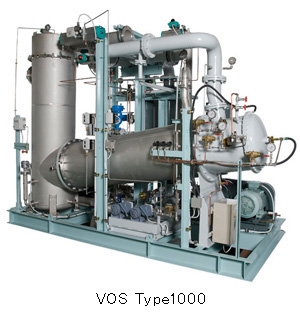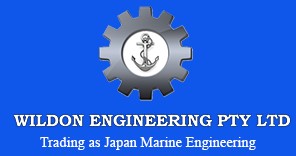Ballast Water Treatment Systems: How They Combat Invasive Species
Blog | November 28th, 2024
Wildon Engineering’s ballast water treatment systems combat invasive species, protecting marine ecosystems by neutralising harmful organisms before discharge.
Ballast water treatment systems or BWTS are essential in preventing the spread of invasive species through global shipping. By filtering and disinfecting ballast water, these systems remove or neutralise harmful organisms like plankton, bacteria, and larvae, ensuring they aren’t released into new environments where they could disrupt local ecosystems.
What are Ballast Water Treatment Systems?
BWTS are technologies installed on ships to treat ballast water before it’s discharged back into the ocean. Ships take in ballast water to maintain stability and balance, especially when they’re not carrying cargo. However, this water often contains marine organisms, bacteria, and invasive species that can disrupt ecosystems when discharged into foreign waters.
BWTS is designed to prevent this ecological harm by treating the water to eliminate or neutralise these organisms.
How Ballast Water Treatment Systems Work
BWTS works by treating the ballast water through various mechanical, physical, and chemical processes before it’s released into the environment. The most common methods include:
1. Filtration: Ballast water is passed through filters or strainers to remove large particles, sediments, and organisms. This is typically the first stage of the treatment process, designed to physically separate larger debris from the water.
2. Disinfection: There are different disinfection methods used by BWTS depending on their overall components. Ultraviolet (UV) light, for instance, can be used to inactivate microorganisms in the water. In some systems, chemical disinfectants like chlorine or ozone are added to the ballast water to kill bacteria and other harmful organisms. Another method uses electrical currents to generate active substances from seawater to disinfect the ballast water.
3. Neutralisation: Some systems then include neutralisation to remove any harmful residues from the treatment chemicals before the water is discharged to prevent environmental contamination.
4. Advanced Oxidation: Other BWTS use advanced oxidation processes, combining UV light and chemical oxidation agents, to break down and neutralise organisms and contaminants.
Once treated, the water is safe to be discharged without the risk of introducing invasive species or harmful bacteria to new environments. BWTS are crucial for maintaining marine biodiversity and ensuring compliance with international environmental regulations, such as the International Maritime Organization’s (IMO) Ballast Water Management Convention.
Combating Invasive Species with Quality BWTS
BWTS combats invasive species by neutralising or eliminating harmful organisms present in ballast water before it is discharged into new marine environments
By ensuring that ballast water is treated before discharge, BWTS prevent the introduction of non-native species that could upset the ecological balance. Invasive species can outcompete local species for resources, alter food chains, and cause significant damage to fisheries, marine habitats, and economies dependent on marine resources. Neutralising these species with BWTS helps maintain biodiversity and protect marine ecosystems.
Removing or inactivating potentially harmful organisms through filtration, UV radiation, chemical treatment, and oxidation, Ballast Water Treatment Systems help prevent the spread of invasive species. These systems are important for protecting marine environments and preserving ecological balance in the face of increasing global shipping traffic.
For high-quality BWTS for your ship, contact us at Wildon Engineering. We are the authorised sales and spare parts distributor for Mitsubishi VOS Ballast Water Treatment System in Australia and New Zealand region. This particular BWTS can be installed in many vessels ranging in size from general cargo vessels to supertankers.
Optimized by NetwizardSEO.com.au
Recent Posts
- Yanmar Parts Online Australia – Genuine Yanmar Spare Parts at Competitive Trade Prices
- Turbochargers Supply from Japan Marine: Wildon Engineering’s Excellence in Global Shipping
- Mitsubishi VOS Ballast Water Treatment System: Next-Generation Marine Environmental Solutions
- Yanmar Marine Compressors: Reliable Power Systems for Commercial Vessels
- Water-Lubricated Stern Tube Bearings Explained: How EVR Technology Supports Marine Propulsion
- YANMAR Auxiliary Generator Engine Parts for Commercial Vessels
- Fluid Control Systems: Innovations in Marine Applications
- Yanmar Diesel Generators Australian Distributor: Power for Shipping & Marine Operations
- Navigation & Communication Equipment: Essential Tools for Safe Voyages
- Stern Tube Seals: Preventing Leaks & Maintaining Vessel Integrity
